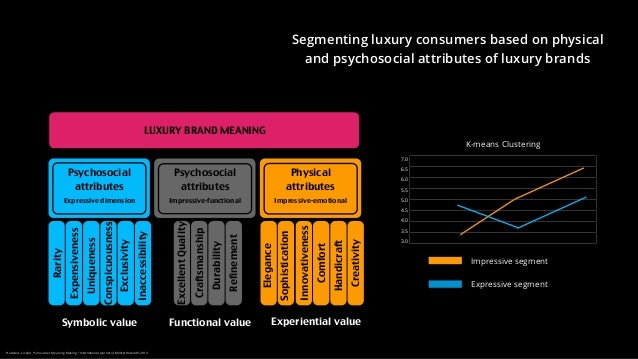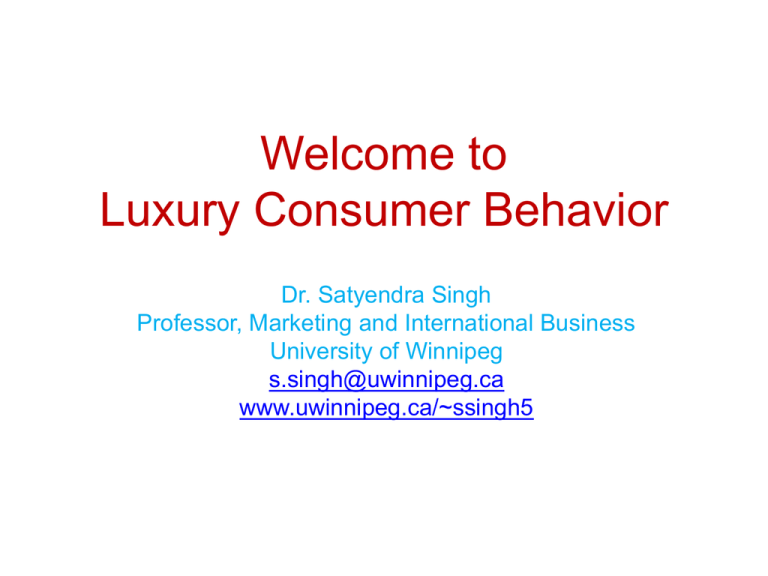Decoding Luxury Consumer Behavior: Trends And Insights For 2025
.png?format=1000w)
Understanding luxury consumer behavior is essential for any brand aiming to thrive in the high-end market. As the luxury industry evolves, so do the expectations and preferences of affluent consumers. This article explores the driving forces behind luxury purchases, emerging trends, and the psychological factors that influence these high-stakes decisions. By decoding luxury consumer behavior, brands can tailor their strategies to foster loyalty and meet the needs of their discerning clientele.

Key Factors Influencing Luxury Purchases
Economic Factors
Economic conditions significantly impact luxury consumer behavior. When the economy flourishes, affluent consumers are more inclined to spend on high-end goods. Conversely, during economic downturns, they may tighten their purse strings. According to McKinsey & Company, luxury spending rose by 20% in 2021 due to economic recovery post-COVID-19. This highlights the correlation between economic stability and luxury purchases.
Social Factors
Social influences also play a critical role in luxury consumer behavior. Affluent consumers often seek products that enhance their status and reflect their lifestyle. For instance, social media platforms like Instagram and TikTok have shifted marketing strategies, allowing brands to showcase their products through influencers. Brands like Gucci and Chanel leverage these platforms to create aspirational content that resonates with younger affluent consumers.

Technological Factors
Technology continues to reshape luxury shopping experiences. E-commerce platforms, augmented reality (AR), and artificial intelligence (AI) are pivotal in attracting tech-savvy consumers. Luxury brands are investing in online shopping experiences that are seamless and personalized. For example, Louis Vuitton uses AR to allow customers to visualize products before purchasing, enhancing the overall shopping experience.
Trends in the Luxury Market for 2025
As we look towards 2025, several luxury market trends are emerging. Sustainable luxury is gaining traction, with consumers prioritizing eco-friendly and ethically sourced products. According to Bain & Company, 45% of luxury consumers are willing to pay more for sustainable goods. Additionally, the rise of experiential luxury—such as travel and exclusive events—reflects a shift from material possessions to memorable experiences.
Furthermore, digital engagement will continue to grow. Brands are expected to enhance their online presence and create immersive shopping experiences. This trend is crucial in attracting younger consumers who value convenience and innovation.
The Role of Brand Loyalty in Luxury Consumption
Brand loyalty is a cornerstone of luxury consumer behavior. Affluent consumers often develop strong attachments to brands that align with their values and lifestyle. For instance, LVMH, under CEO Bernard Arnault, has cultivated a loyal customer base through consistent quality and innovation. Case studies show that brands like Chanel and Gucci maintain loyalty by offering exclusive products and personalized experiences, reinforcing their prestige.

Luxury brands must understand that loyalty transcends mere transactions. Engaging consumers emotionally and providing exceptional customer service are vital for fostering long-term relationships.
Psychological Aspects of Luxury Buying
Consumer psychology plays a significant role in luxury purchases. Many affluent consumers see luxury goods as a reflection of their identity and success. According to the Harvard Business Review, luxury items provide a sense of belonging and status. This psychological need drives consumers to invest in high-end brands.

Additionally, the concept of scarcity influences purchasing decisions. Limited-edition products create urgency and desirability. Brands like Hermès capitalize on this by offering exclusive items that are not easily accessible, further enhancing their allure.
Demographics of Luxury Consumers
Affluent consumers are a diverse group, with varying demographics influencing their purchasing behavior. According to Euromonitor International, millennials and Gen Z now account for over 30% of luxury spending. These younger consumers prioritize experiences and sustainability over traditional luxury values.
Statistics indicate that 70% of affluent consumers prefer brands with a strong social responsibility message. This shift in values necessitates that luxury brands adapt their strategies to cater to this evolving demographic, emphasizing transparency and ethical practices.
Conclusion
In conclusion, understanding luxury consumer behavior is crucial for brands aiming to succeed in the competitive luxury market. By recognizing economic, social, and technological influences, as well as the psychological factors at play, brands can better engage affluent consumers. As trends evolve towards sustainability and experiential luxury, companies must adapt their strategies accordingly. With insights from leaders in the field, such as Bernard Arnault at LVMH, brands can foster loyalty and ensure sustained growth. To stay ahead, marketers and luxury brand managers should continuously analyze and adapt to these dynamic consumer behaviors.
If you're ready to deepen your understanding of luxury consumer behavior, explore our articles on luxury brand strategies and market trends for 2025.
